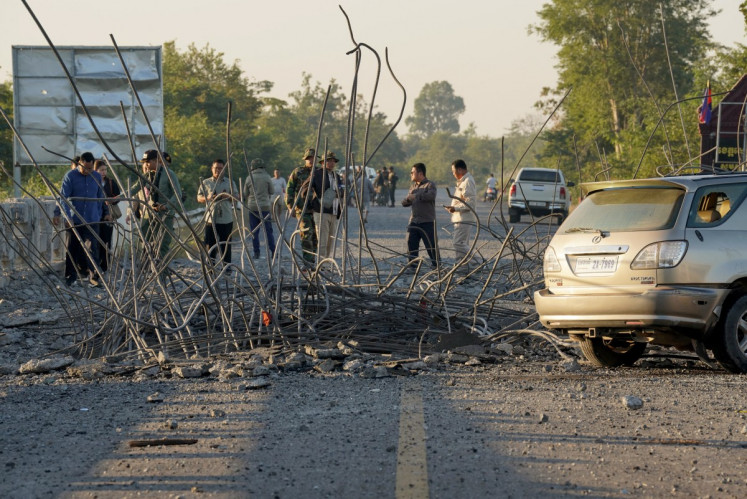Popular Reads
Top Results
Can't find what you're looking for?
View all search resultsPopular Reads
Top Results
Can't find what you're looking for?
View all search resultsA love letter to Indonesian scholars
Emails between Indonesian political scholars were recently sent out with sensitive tones
Change text size
Gift Premium Articles
to Anyone
E
mails between Indonesian political scholars were recently sent out with sensitive tones. It was not because the contents were controversial. It was due to the condition of a critically ill prominent scholar.
The scholar, whose name will not be mentioned out of respect, has become very ill. Currently, his weight is only 30 kilograms. The saddening thing is that, financially, he is in a dire situation.
To make it more sensitive, the emails go on to say that aging scholars face lots of life difficulties. One cannot pay for gasoline as most of his wages must go for health costs. A professor is very ill and lives alone in a remote area. More strikingly, another prominent scholar died in his simple home, alone, and his body was only discovered three days later.
It is saddening. Indonesian scholars, regardless of what their areas of expertise are and how influential they are, must have contributed something. They should be marked highly for their advancement, particularly in producing generations who continue to improve the country.
It is saddening due to a contradiction. Those who have contributed much to the country are not well compensated for their deeds. That is why in their old age, many still struggle for something basic such as health treatment.
The pertinent calls must be addressed to the government. Indonesian scholars, and educators in general, must receive appropriate remuneration and allowances. In that regard, the government can play a significant role in bringing forward appropriate policies.
There is no doubt that Indonesia cannot be compared apple-to-apple with other developed countries. But as a member of the so-called “elite” Group of Twenty (G-20), benchmarking to other developed countries or even “middle powers” can be made. After all, it must be the people’s ultimate dream to see this country transformed into a developed one.
It is widely known that scholars in the developed world are well compensated for their intellectual work. The compensation is not only made during their active period: even pensioners receive appropriate benefits.
That situation will certainly create a more conducive atmosphere for scholars to produce more. They also need not to worry about their futures as things have been planned well in advance.
The above arguments are for the government to work hard for. The next thing worth considering is how scholars act or equip themselves while in this unfortunate situation.
Arguably, demanding that the government do something is one thing. It is commonly recognized that the government has been overwhelmed with problems. Demanding something from it often ends up causing another problem or even frustration.
Therefore, it is the scholars’ turn to act and equip themselves for their own living. As a sign of love and care for Indonesian scholars, I humbly suggest two options that they can think about.
First, increase their incomes. As scholars, they must have ideas that are worth acting upon. They can think like entrepreneurs who transform ideas into income generation.
Unquestionably, there must be changes in the old perspective of money and wealth being unimportant. They are not everything, but they are tools that can be used for better living standards.
If scholars start to think like entrepreneurs, they will be able to create something significant, in financial terms. That significance does not necessarily require them to become traders.
An example is the scholars’ activities in developed countries. They are active in doing research that are worth financing. They are also active in looking for sources of funding, including to collaborate with international organizations or industries.
In other words, if there is a will, there will always be a way for income generation. They are legal and morally acceptable as scholars and can still have their own standings on what they produce.
Second, when that income has been increased, scholars can start thinking of investing. They can think like real entrepreneurs who invest for other income generation or to create jobs. At the very least, they can think of investing for themselves and families, such as in a pension fund or in health insurance plans.
In conclusion, all the options are mainly up to the scholars to consider. While efforts in calling the government to create better policies must continue, it is also timely for the scholars to better equip themselves, including through entrepreneurship.
The writer is a scholar, entrepreneur and executive director of Projecting Indonesia.










